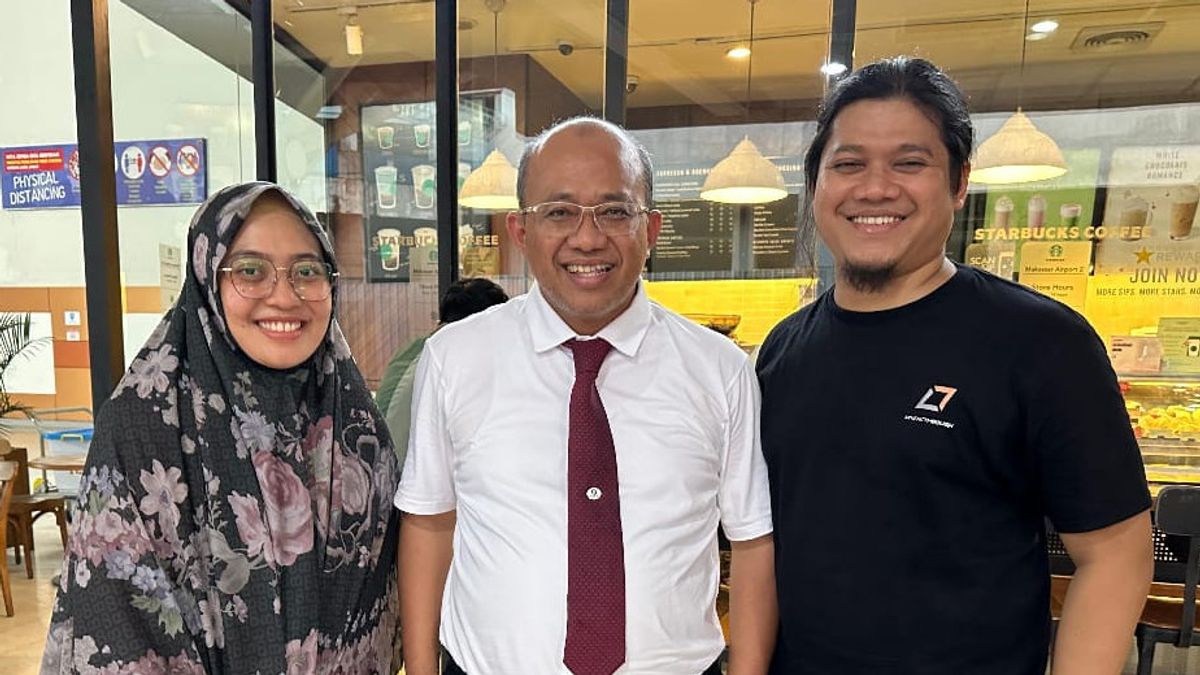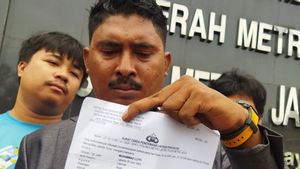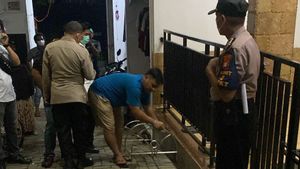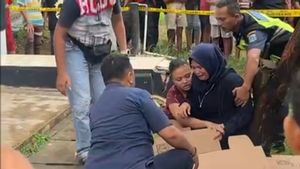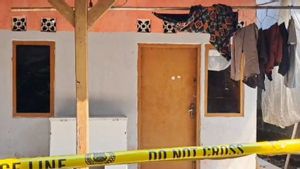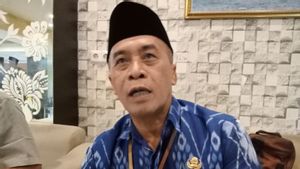JAKARTA - The Executive Board of the Indonesian Doctors Association (PB IDI) expressed his condolences for the passing of Dr. Helmiyadi Kuswardhana, M.Kes, SpOT, FICS, AIFO-K while carrying out service duties at the West Sulawesi Hospital, Mamuju.
Dr. Helmiyadi died of a heart attack this weekend while carrying out his duties as an orthopedic surgeon in Mamuju, West Sulawesi. Dr Helmiyadi is a member of IDI Mamuju Branch and Executive of IDI West Sulawesi Region. Dr Helmiyadi is also part of Medical Influencer PB IDI and the Indonesian Orthopedic Surgeon Association (PABOI) who diligently provides health education to the public through their social media.
"PB IDI gives the Lencana Karya Bakti award and at the same time proposes to the government to also be able to reward Dr Helmi. We also express our highest respect to Dr Helmiyadi SpOT and doctors who have made the biggest sacrifices in carrying out their duties, dedicated their lives to saving others. We respect the professional service they carry out and express their deepest gratitude for their steadfast commitment to providing quality health services to the Indonesian people, with all the limitations experienced, courage, affection, and dedication to patients will never be forgotten, and hopefully many other Helmi doctors will appear to continue their struggles and service in the regions," said DR. Dr. Adib Khumaidi, SpOT - General Chairperson of the Indonesian Doctors Association, through a written statement, Sunday 14 July.
Indonesia is one of the countries with a ratio of doctors per patient that is still low in the world, namely 0.4 doctors per 1,000 population. PB IDI highlighted that one of the main problems in the health care system in Indonesia is the inequality in the distribution of doctors because many doctors are concentrated in urban areas, so rural communities and remote areas do not have access to the health services needed.
This is coupled with the lack of availability of inadequate medical equipment, medicines, and infrastructure. This unequal distribution of doctors and resources hampers the country's ability to provide quality health services for its citizens, especially in rural areas and underserved areas.
SEE ALSO:
This is not just a matter of numbers; this is a matter of life - life and death. The lack of doctors in certain areas causes many Indonesians not to get access to quality health services, and this is a problem we cannot ignore. We also face a shortage of medical equipment, medicines, and infrastructure. Health facilities in rural areas often lack basic equipment, so doctors cannot provide adequate care. And in terms of medicines, many essential medicines have limited supplies, so patients do not have access to the treatment they need, besides that the problem of financing ability through JKN-BPJS is also still inadequate, "explained Dr. Adib.
Adib also added that the inequality of health service capabilities is also accompanied by uneven infrastructure. Many health facilities in the regions, especially rural areas that lack basic facilities, such as clean water, electricity, and sanitation. This will also have an impact on health service work that cannot be optimal. The availability of medical devices, infrastructure and medicine also affects the quality and ability of basic health services in the regions.
The consequences of all of this have forced patients to travel long distances to get medical care and treatment and often at large costs. And in some cases, patients are already in chronic condition and terminals without access to good medical care.
Dr. Adib said that this health problem is not only a problem and the responsibility of the government but also requires the important role of all components of the nation including professional organizations, NGOs, academic groups, the private sector, mass and social media, and of course the community itself as at the forefront of agents of changing health transformation.
An increase in the number of doctors in the regions can be done through scholarships and incentive programs. In addition, the central and regional governments need to invest in medical equipment, medicines, and infrastructure, to ensure that hospitals and health facilities in the area have the resources they need to provide quality services.
It is also supported by financing capabilities from both the central, regional and JKN -BPJS governments
PB IDI reminded that access to quality health services is a basic human right and everyone has access to the medical care they need, wherever they live.
"So let's all work together to overcome this critical problem. Let's work together to improve our health care system, and ensure that every Indonesian has access to quality medical services. We can do this, and we have to do this. We have to "total football" in efforts to totalize health transformation. The future of our country depends on this basic health problem," Adib concluded.
The English, Chinese, Japanese, Arabic, and French versions are automatically generated by the AI. So there may still be inaccuracies in translating, please always see Indonesian as our main language. (system supported by DigitalSiber.id)
